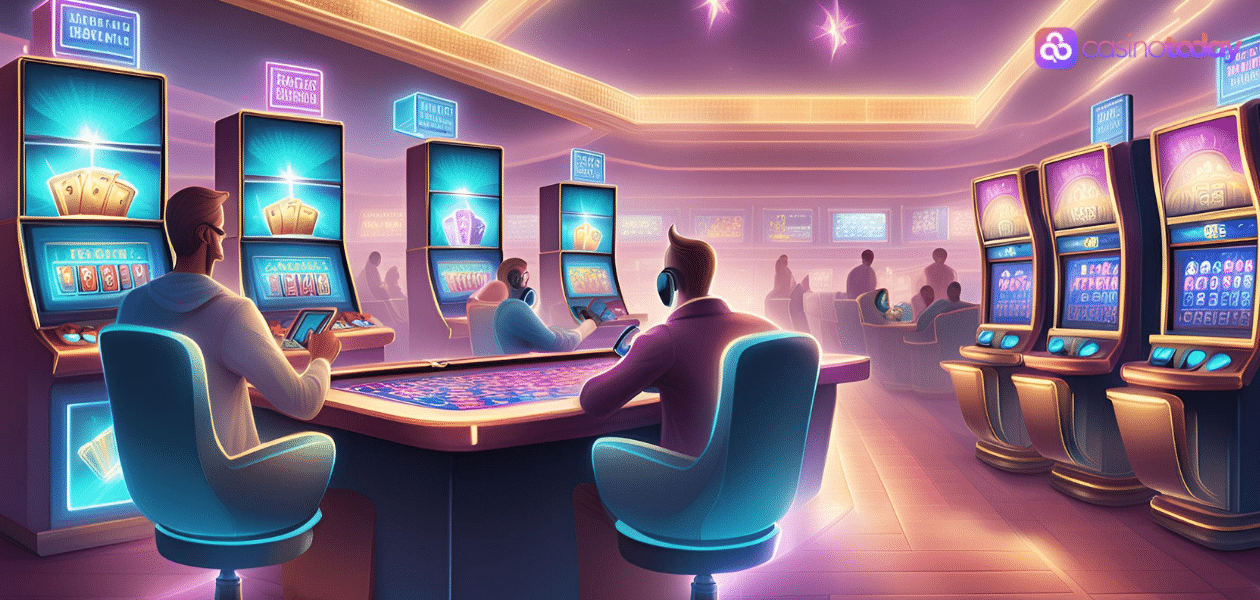Last updated: February 13, 2025

As the 2025 legislative season kicks off, iGaming legalization is dividing the US casino industry. Major operators like MGM Resorts and Caesars support online gambling, citing growth potential, while opponents like Cordish Companies and Churchill Downs warn of job losses and declining in-person revenue.
Online gaming is now being considered in state capitals as the legislative season for 2025 is in full swing. Whether or not to legalize iGaming, which encompasses interactive slot machines and table games, is mostly a matter of personal opinion.
Most of the big gaming operators in the United States, such as MGM Resorts, Caesars Entertainment, Penn Entertainment, and Boyd Gaming, support this measure with overwhelming backing. Light & Wonder, a leading manufacturer of physical gaming products like slots and tables, also has a positive opinion of iGaming and has invested heavily in its digital division.
Some of the big players oppose online gaming, arguing that it detracts from in-person play and hurts the revenues of physical gaming establishments, which in turn hurts related industries like food and beverage, entertainment, and hotel sales. Companies opposed to iGaming also express concerns regarding problem gambling and the absence of consumer protections to guarantee responsible play.
Among the opponents is Las Vegas Sands, the largest gambling entity in the world by market capitalization. Wynn Resorts also expresses hesitation towards iGaming compared to its main competitors.
Regional casino operators, specifically The Cordish Companies in Maryland and Churchill Downs Incorporated in Kentucky, have lobbied intensively against iGaming in state capitals. Last year, the owners of Live! and TwinSpires united to create the National Association Against iGaming (NAAiG). Moreover, the Monarch Casino Resort & Spa in Black Hawk, Colorado, was also one of the founding partners of NAAiG.
A new study commissioned by NAAiG and prepared by The Innovation Group, a New Orleans-based gaming consulting firm, aims to dispel the common myths propagated by iGaming supporters that encourage state lawmakers to legalize remote casino gambling.
Innovation researchers calculated that land casinos lose 16% of their on-site gross gaming revenue (GGR) on average following the expansion of iGaming. This leads to “substantial job losses, hundreds of millions of dollars in lost economic output, and reduced tax contributions supporting public services.”
If Illinois and New York legalize iGaming next, The Innovation Group predicts the loss of almost 10,000 jobs by 2029. Jobs in the on-site casinos would decrease by more than 2,800 jobs if Ohio had online casinos, Louisiana would lose over 2,600 jobs, and Mississippi would lose around 1,900 jobs. All of these states have introduced a bill for iGaming.
“IiGaming is draining communities,” declared Shannon McCracken, senior director of government relations at Churchill Downs. “This is not simply responsible gaming — this is about maintaining local family-sustaining jobs and preventing economic harm.”
“IiGaming’s unbridled access to gambling on mobile phones is poor public policy endangering local jobs and businesses and that will cost states. When augmented social costs that occur as a result of iGaming, such as increased underage and problem gaming, are included in the calculation of the equation, the net tax revenue result is consistent across all states,” added The Cordish Companies’ executive vice president and general counsel Mark Stewart.
iGaming proponents say it’s complementary. For all their public opposition to iGaming, Cordish has online casinos in Pennsylvania, one of only seven states where the internet is licensed for slots and table games. Cordish insists its move was necessary after Pennsylvania lawmakers opened up gaming to the internet in 2017. Churchill also has a casino in Pennsylvania — Presque Isle Downs & Casino — but opted to sell its iGaming rights to bet365.
Cordish and Churchill are in the minority opinion in asserting that iGaming is harmful to physical casinos and the gaming industry in general. In a recent interview with Casino.org, Howard Glaser, a senior government affairs specialist with L&W, estimated that a large percentage of high school and college students are already gambling online on unregulated offshore casino sites and/or in-question “sweepstakes” casino sites that are in a gray area.
“It’s the same question for us,” Glaser responded. “We are a land-based company; our numbers will reflect this, but as a public company, we owe it to our investors and shareholders. We are pro-growth. Our conclusion is that [iGaming] is already occurring illegally, and in markets where iGaming is legalized, it has been proven to be complementary to land-based properties. They can complement each other and drive growth.”
Glaser said that Light & Wonder struggled with the same questions about iGaming and made a careful analysis of its pros and cons. He said that the Las Vegas gaming giant concluded that online gaming is a net positive.